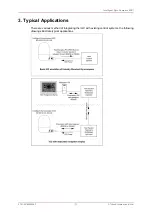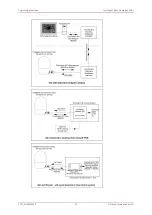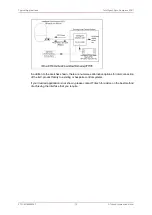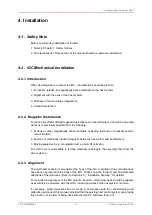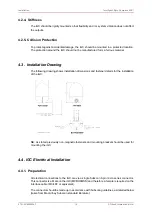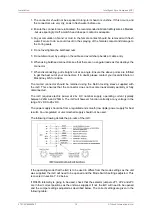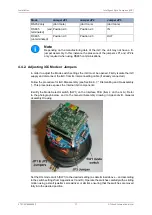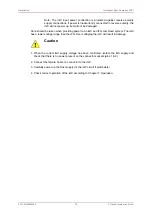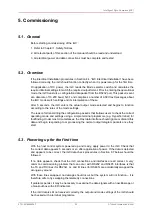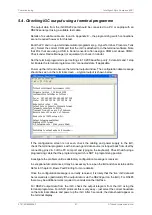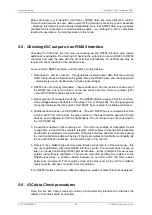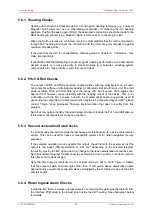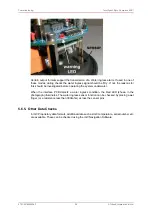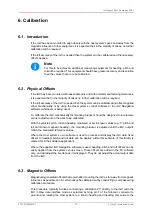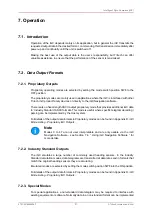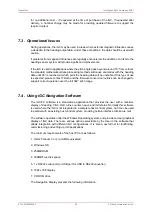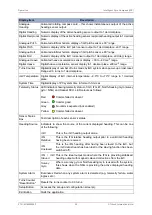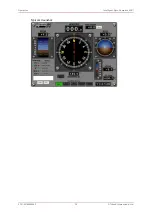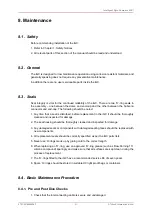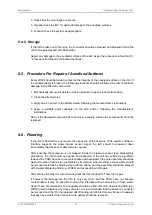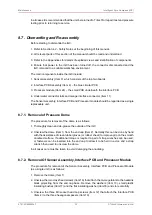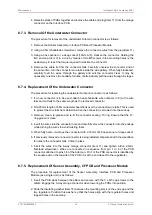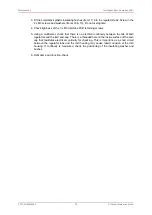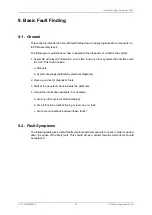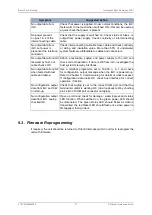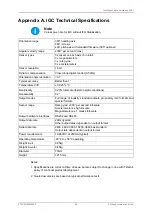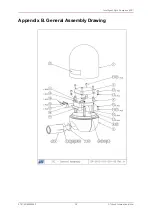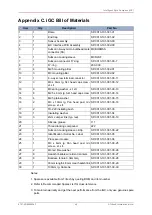
Intelligent Gyro Compass (iGC)
0707-SOM-00004-7
25
© Tritech International Ltd.
6. Calibration
6.1. Introduction
If the iGC has been mounted to align closely with the host system’s axes and away from the
magnetic influence of other equipment, it is expected that, in the majority of cases, no further
calibration will be required.
If the full accuracy of the iGC is needed then the system can be calibrated and the necessary
offsets applied.
Note
For this to be achieved, additional measuring equipment for heading, pitch and
roll will be required. This equipment should have greater accuracy and resolution
than the values that are to be calibrated.
6.2. Physical Offsets
If the iGC has been mounted with reasonable care and with normal manufacturing tolerances,
it is expected that in the majority of cases no further calibration will be required.
If the full accuracy of the iGC is needed then the system can be calibrated and offsets applied
either mechanically or by using the Host system’s control software or the iGC Navigation
software (whichever is being used).
To calibrate the iGC mechanically its mounting bracket should be designed to incorporate
vernier adjustment on the axes to be calibrated.
With the vehicle’s pitch, roll and heading measured or set to known values (e.g. 0° pitch and
roll and known magnetic heading), the mounting bracket is adjusted until the iGC outputs
match the measured reference values.
Where the Host system’s own software is used to process and display the iGC data, fixed
offsets to heading, pitch and roll data can be applied within this software (if this facility is
catered for in the software application).
Where the supplied iGC Navigation software is used, heading, pitch and roll offsets can be
easily applied from the system set-up screen. These offsets are added in the PC software
only, and will adjust the live data as it is displayed. They do not adjust the actual output data
from the iGC.
6.3. Magnetic Offsets
Magnetically generated offsets that remain after mounting the iGC as far away from magnetic
influences as possible can in certain cases be calibrated out by conducting a compass swing
calibration procedure.
This procedure typically involves connecting a calibration PC directly to the iGC (with the
iGC in Raw data interface mode as selected by tying pin 7 of the Subconn connector to
ground) and rotating the Host system to a known heading and inputting this value to the

